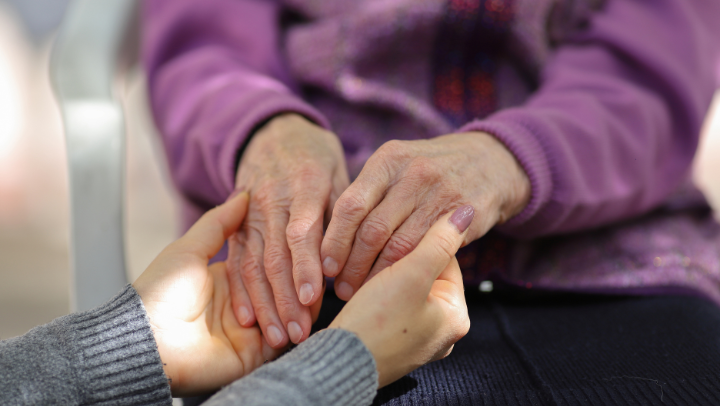Anxiety affects up to 20% of the older population, making it the most common mental health challenge for senior women and the second most common for men. When you’re seeking 24/7 assisted living in Tacoma, WA, understanding these statistics becomes crucial for ensuring support for your loved ones. Untreated anxiety in seniors can lead to significant challenges, including cognitive impairment, poor physical health and decreased quality of life. In fact, studies show that sleeplessness, a common anxiety symptom, can increase anxiety levels by up to 30% the following day.
Understanding Senior Anxiety Signs
Physical symptoms can serve as the first indicators of anxiety in seniors. Research shows that approximately 1 in 4 senior adults experience anxiety disorders, yet many cases remain undiagnosed due to their subtle nature.
Physical Manifestations: Seniors with anxiety commonly experience gastrointestinal issues, sleep disturbances and concentration difficulties. Additionally, cardiovascular symptoms such as rapid heartbeat and chest discomfort frequently appear alongside neurological signs like dizziness and tremors.
Behavioral Changes: Studies reveal that anxiety in older adults correlates strongly with specific behavioral patterns. Seniors might display:
- Social withdrawal and activity avoidance
- Excessive worry about routine matters
- Memory problems and confusion
- Repetitive behaviors or rituals
Cognitive Impact: Research indicates a significant connection between anxiety and cognitive function. Studies have found that men with anxiety symptoms experience greater declines in both global cognitive function and executive function over time. Moreover, agoraphobia has been linked to decreased performance across multiple cognitive domains.
Long-term Effects: Untreated anxiety can lead to significant health complications. Studies show that anxiety can increase the risk of dementia progression and may serve as an early marker of brain structure changes. Moreover, anxiety has been associated with reduced volumes of hippocampal subfields and cortical thickness of temporal lobes.
Common Triggers in Older Adults
- Health-Related Concerns: Physical health challenges often spark anxiety in seniors. Studies show that chronic conditions, mobility limitations and ongoing pain contribute significantly to anxiety disorders. Notably, certain medications – steroids, stimulants and inhalers – can trigger anxiety-like symptoms.
- Loss and Grief: Bereavement remains a profound trigger for anxiety among older adults. The death of loved ones, alongside complicated or chronic grief, can lead to persistent anxiety symptoms. This emotional burden becomes particularly challenging as loss becomes more frequent in later years.
- Social Isolation: One in six older adults experiences some form of abuse, often from their own caregivers. Social isolation affects approximately 25% of seniors, making it a key risk factor for anxiety. This isolation intensifies particularly among those with cognitive impairment.
- Cognitive Changes: Seniors often worry about memory loss and cognitive decline. Health-related anxiety frequently centers on fears of losing mental capacity. These concerns intensify particularly among those with early signs of cognitive impairment.
A Supportive Environment
A supportive environment plays a significant role in managing senior anxiety. Research indicates that structured routines alongside emotional support reduce anxiety symptoms by up to 40% in older adults. A well-organized daily schedule helps seniors maintain a sense of control. Studies show that seniors who follow consistent routines experience:
- 35% reduction in anxiety-related symptoms
- Better sleep quality
- Enhanced cognitive function
- Improved medication adherence
Communication Strategies: Clear patient communication forms the foundation of anxiety management. Active listening techniques, alongside regular check-ins, help identify early signs of distress. Seniors who engage in regular conversations with caregivers show 25% lower anxiety levels.
Social Connection Enhancement: Regular social interactions reduce isolation-related anxiety. Studies reveal that seniors who maintain social connections experience 30% lower rates of anxiety disorders. Family visits, group activities and technology-enabled communication all contribute to emotional well-being.
Professional Support Integration Mental health professionals play a crucial role in anxiety management. Regular counseling sessions, alongside medication management, when necessary, provide comprehensive support.
Stress Reduction Techniques: Simple stress management strategies help seniors cope with anxiety. Research shows that regular relaxation practices reduce anxiety symptoms by 45%. These techniques, alongside proper medication management, create a comprehensive approach to anxiety care.
At Peoples Senior Living, we understand the importance of creating supportive environments that address both physical and emotional needs of seniors.
A Better Outcome
Senior anxiety presents complex challenges that require understanding, patience and professional support. Through proper recognition of anxiety signs and awareness of common triggers, you can help your loved ones maintain better mental health during their retirement years.
Creating a supportive environment makes a significant difference in managing senior anxiety. Research shows that combining structured routines with emotional support leads to better outcomes for seniors dealing with anxiety
While managing senior anxiety might seem overwhelming, remember that professional help is available. To learn more about our senior living community and how we can support you throughout this, reach out to our caring team at (253) 474-1741. Taking action early and maintaining consistent support helps ensure your loved ones can have the care they need.












